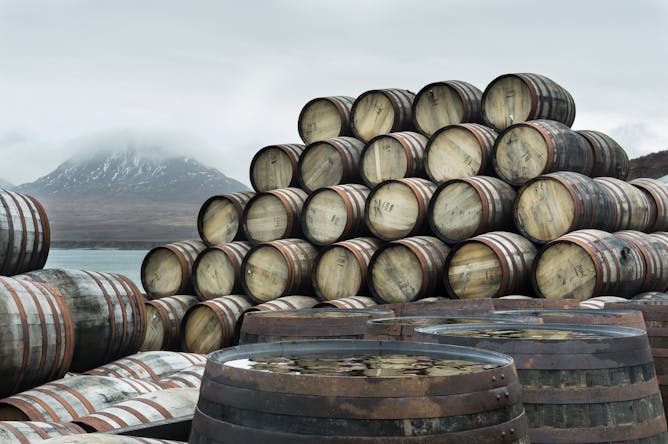|
Just like a good whisky, the tale of how the Scottish drink has endured trade disputes, world wars and pandemics is both complex and deserving of your time, explains University of Glasgow professor Niall G. MacKenzie.
The industry has spent 200 years building supply lines all over the world. The tipple’s appeal to U.S. drinkers survived Prohibition and is now enjoyed across the world, with India and China becoming key markets more recently. As a result, the latest U.K. government data shows Scottish distillers saw a 25% sales boost in 2022.
Another factor in Scotch whisky’s global success: As the tastes of drinkers in these various markets have changed over time, the industry has pivoted to adapt – even amid the kind of supply chain problems many industries have dealt with in recent years. Scottish writer Robert Louis Stevenson called whisky the “king o’ drinks,” and it seems the world is inclined to agree.
|

Niall G MacKenzie, University of Glasgow
Scotch whisky has grown its export business in recent years by developing smart marketing strategies and strong distribution networks.
|
Quote of the week 💬
|
-
"Barbie was already a juggernaut brand before the release of the film. In 2002, an appellate judge in the United States said, “Mattel created not just a toy but a cultural icon.” Mattel has been vigilant about controlling the Barbie image. It tried to stop conceptual artist Thomas Forsythe from creating artworks depicting Barbie in perilous positions – such as in cocktail blenders and under an oven grill. And in the late 1990s, Mattel tried to stop Danish pop group Aqua from singing about Barbie."
– Graeme Austin, Chair of Private Law, Te Herenga Waka — Victoria University of Wellington, from his story Dolls and dollars: why small businesses should be wary of cashing in on Barbiemania with their branding
|
|
Business
|
-
Md Safiullah (Safi), RMIT University; Abul Shamsuddin, University of Newcastle
Islamic banks must follow Sharia law, and as such take a different approach to traditional Australian banks. They don’t charge interest, and are much more selective about which activities they fund.
|
|
Personal finance
|
-
Fredrick Kibon Changwony, University of Stirling
Specific savings goals can help increase your pot – but so can advice and confidence with numbers.
-
Bomikazi Zeka, University of Canberra; Abdul Latif Alhassan, University of Cape Town
Access to economic and education opportunities increases women’s ability to withstand and recover from financial shocks.
|
|
Labor
|
-
Marick Masters, Wayne State University
A strike would shake up the auto industry even though both the union’s ranks and the share of the US automotive market controlled by GM, Ford and Stellantis have been shrinking for decades.
|
|